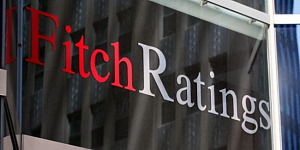Angola's central bank cut its benchmark BNA rate by a further 25 basis points to 15.50 percent and said this was based on the fact that "inflation continued on its downward trajectory, as well and the evolution of the monetary base in national currency, the monetary policy operational variable, which contracted 0.54 percent in the last 12 months."
It is the third rate cut by the National Bank of Angola since July 2018 and the second cut this year, bringing the total cut to the BNA rate in the current easing cycle to 250 basis points.
Angola's inflation rate fell for the fourth month in a row to 17.36 percent in April from 17.56 percent in March for the lowest level since January 2016 despite the steady, but continued depreciation of the exchange rate of the kwanza since January 2018 when Governor Jose Massano replaced the bank's fixed exchange rate regime with a floating regime.
Since then BNA has used auctions to set a reference rate for the kwanza, which was trading at 328.9 to the U.S dollar today, down 6.1 percent since the start of this year and down 50 percent from its level when it was pegged to the dollar around 166.
Massano's first move after taking over BNA in October 2017 - part of President Joao Laurenco's move to clean up Angola's image as a corrupt state - was to raise the BNA rate by 200 basis points to hammer home his commitment to lower inflation.
In addition to the rate hike in November 2017 and the new currency regime, Massano has overhauled BNA policy framework by adopting the monetary base as an operational variable for monetary policy to better control liquidity, lowered and changed the basis for banks' mandatory reserves, and unified the rate on the marginal lending facility with the bank's basic interest rate.
As many other oil exporting nations, Angola was hit hard by the plunge in crude oil prices in 2014 and suffered from a shortage of foreign currency. Inflation rose sharply in 2016 and hit 41.12 percent in December that year but has slowly, but surely, been falling since then.
In April Angola's gross international reserves amounted to US$16.33 billion, enough to cover 8.97 months of imports, up from $15.99 billion in February.





































